I have an issue with a many-to-many relation in Spring Boot. Code is as follows:
public class Task {
@Id
@GeneratedValue
private Long id;
@ManyToMany(cascade = {PERSIST, MERGE}, fetch = EAGER)
@JoinTable(
name = "task_tag",
joinColumns = {@JoinColumn(name = "task_id", referencedColumnName = "id")},
inverseJoinColumns = {@JoinColumn(name = "tag_id", referencedColumnName = "id")}
)
@Builder.Default
private Set<Tag> tags = new HashSet<>();
public void addTags(Collection<Tag> tags) {
tags.forEach(this::addTag);
}
public void addTag(Tag tag) {
this.tags.add(tag);
tag.getTasks().add(this);
}
public void removeTag(Tag tag) {
tags.remove(tag);
tag.getTasks().remove(this);
}
public void removeTags() {
for (Iterator<Tag> iterator = this.tags.iterator(); iterator.hasNext(); ) {
Tag tag = iterator.next();
tag.getTasks().remove(this);
iterator.remove();
}
}
@Override
public boolean equals(Object o) {
if (this == o) return true;
if (!(o instanceof Task)) return false;
return id != null && id.equals(((Task) o).getId());
}
@Override
public int hashCode() {
return id.intVal();
}
}
and
public class Tag {
@Id
@GeneratedValue
private Long id;
@NotNull
@Column(unique = true)
private String name;
@ManyToMany(cascade = {PERSIST, MERGE}, mappedBy = "tags", fetch = EAGER)
@Builder.Default
private final Set<Task> tasks = new HashSet<>();
@Override
public boolean equals(Object o) {
if (this == o) return true;
if (o == null || getClass() != o.getClass()) return false;
Tag tag = (Tag) o;
return Objects.equals(name, tag.name);
}
@Override
public int hashCode() {
return id.intVal();
}
}
Of course, I have the task_tag table where, after inserting a tag in a task and saving that task, an entry appears. However, when I delete a tag (or clear them), the entries do not get deleted from the join table. This is the test:
@Test
void entityIntegration() {
Task task = taskRepo.save(...);
Tag tag1 = Tag.builder().name(randomString()).build();
Tag tag2 = Tag.builder().name(randomString()).build();
Tag tag3 = Tag.builder().name(randomString()).build();
Tag tag4 = Tag.builder().name(randomString()).build();
final List<Tag> allTags = Arrays.asList(tag1, tag2, tag3, tag4);
tagRepo.saveAll(allTags);
task.addTag(tag1);
taskRepo.save(task);
final Long task1Id = task.getId();
assertTrue(tag1.getTasks().stream().map(Task::getId).collect(Collectors.toList()).contains(task1Id));
task.clearTags();
task = taskRepo.save(task);
tag1 = tagRepo.save(tag1);
assertTrue(task.getTags().isEmpty());
assertTrue(tag1.getTasks().isEmpty());
task.addTags(allTags);
task = taskRepo.save(task); // FAILS, duplicate key ...
}
I delete tag1 but when I try to add it back to the task, I get

The task_tag table does have a composite index formed on those two (and only) columns.
What am I doing wrong? I followed each and every suggestion and advice - using set instead of lists, having helper methods, cleaning up etc... I can't find the bug.
Thank you!